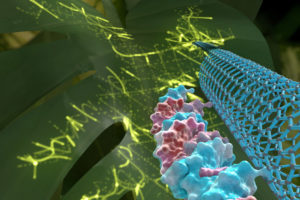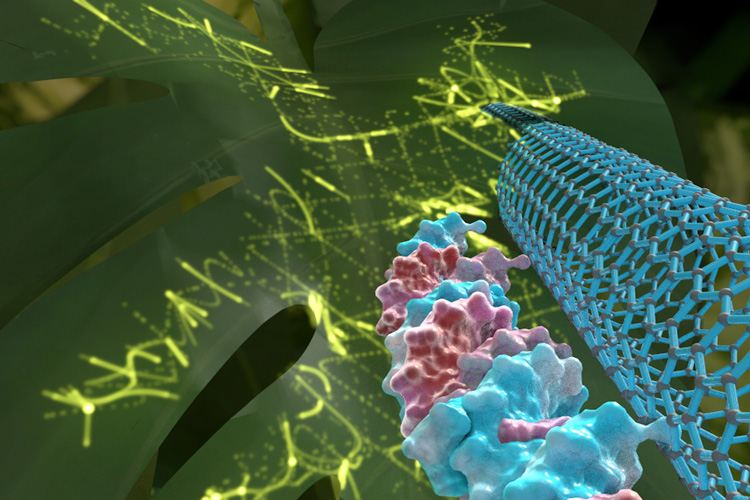 Molecular Biophysics and Integrated Bioimaging (MBIB) faculty scientist Markita Landry has developed a simplified technique for genetically engineering any type of plant that could speed the introduction of new and beneficial genes. While trying to label plant cells with nanotube sensors, Landry, an assistant professor in UC Berkeley’s chemical and biomolecular engineering department, discovered that nanotubes easily slip though plant cell walls, which are known for their tough layers. She immediately saw how to flip this around to deliver genes into plants; she and her colleagues describe the technique in Nature Nanotechnology.
Molecular Biophysics and Integrated Bioimaging (MBIB) faculty scientist Markita Landry has developed a simplified technique for genetically engineering any type of plant that could speed the introduction of new and beneficial genes. While trying to label plant cells with nanotube sensors, Landry, an assistant professor in UC Berkeley’s chemical and biomolecular engineering department, discovered that nanotubes easily slip though plant cell walls, which are known for their tough layers. She immediately saw how to flip this around to deliver genes into plants; she and her colleagues describe the technique in Nature Nanotechnology.

(Graphic by Ella Marushchenko)
To date, most genetic engineering of plants is done by firing genes into the tissue or delivering them via bacteria. Both are successful only a small percentage of the time. But attaching a gene to a carbon nanotube not only protects the DNA from being degraded by the plant cell, it also prevents it from being inserted into the plant’s genome. As a result, the technique allows gene modifications or deletions that in the United States and countries other than the European Union would not trigger the designation “genetically modified,” or GMO.
Read more from UC Berkeley News.




